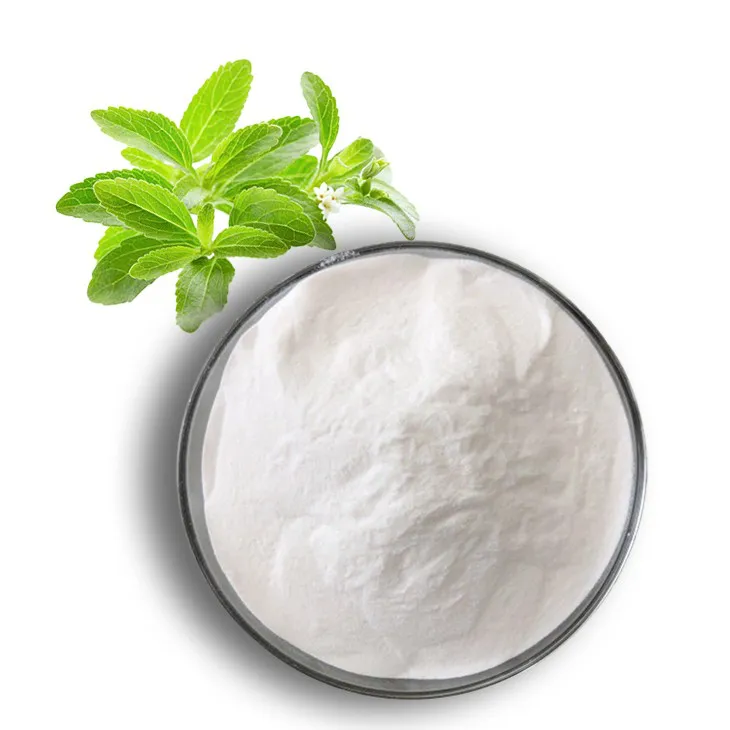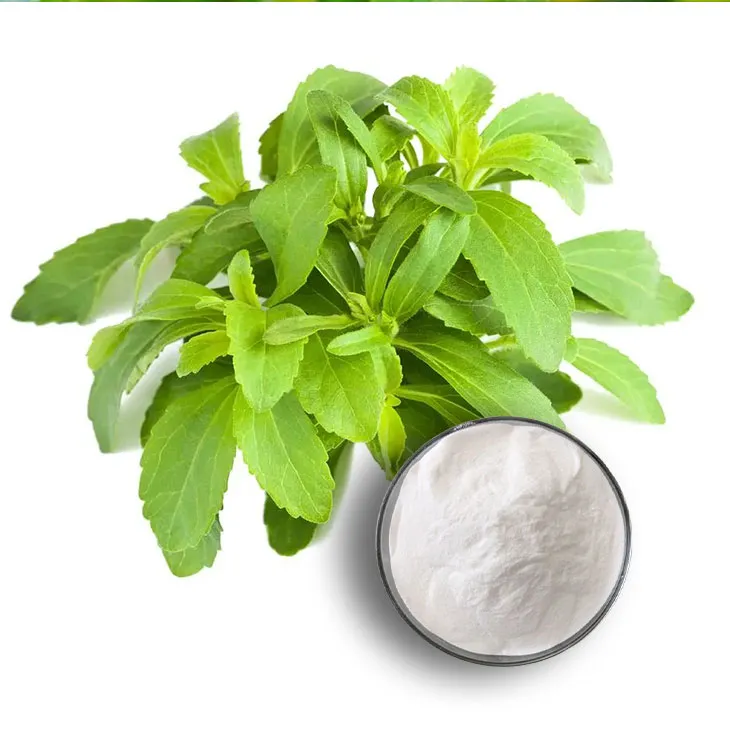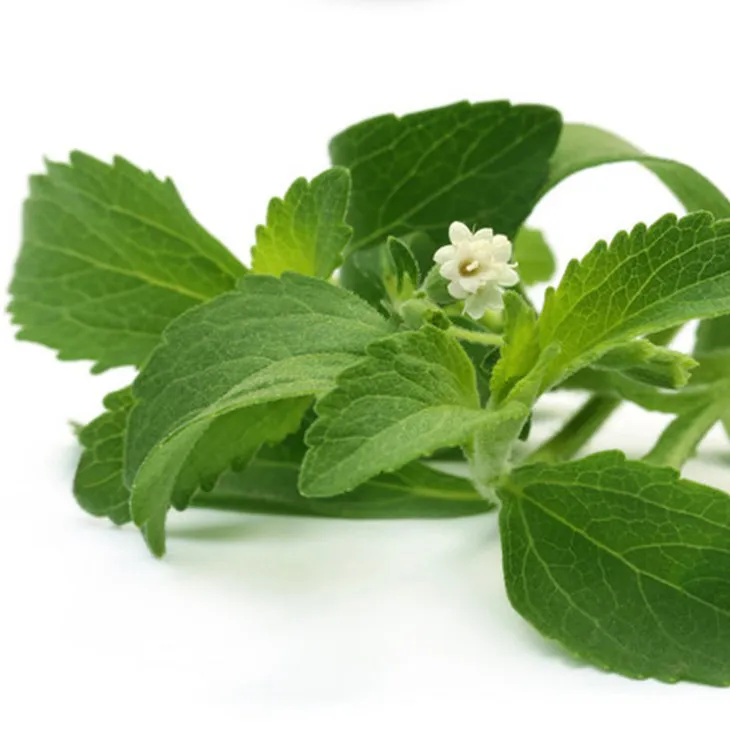- 0086-571-85302990
- sales@greenskybio.com
5 Big Reasons for Using Stevia Extract in the Food Industry.
2024-12-13

1. Sustainability: A Plant - Based Sweetener
In the modern food industry, the concept of sustainability has become increasingly important. Stevia Extract is a prime example of a sustainable sweetener option. It is derived from the leaves of the stevia plant, which is native to South America. This plant - based origin gives Stevia Extract several environmental advantages.
Firstly, growing stevia plants requires less water compared to some of the crops used to produce traditional sweeteners. For instance, sugarcane cultivation demands large amounts of water for irrigation. In contrast, stevia plants can thrive in relatively drier conditions, reducing the strain on water resources.
Secondly, the cultivation of stevia has a lower impact on land use. It doesn't require vast expanses of land like some of the large - scale sugarcane or corn (used for high - fructose corn syrup) plantations. This means that more land can be preserved for other ecological or agricultural purposes.
Moreover, the production of Stevia Extract doesn't involve complex chemical processes that are often associated with the production of artificial sweeteners. This simplicity in production not only reduces the environmental footprint but also makes it a more natural alternative for consumers who are increasingly conscious about the origin and production methods of the foods they consume.

2. Allergy - Friendly: An Alternative for Sensitive Consumers
Many people around the world suffer from allergies or sensitivities to common sweeteners such as sugar or aspartame. Stevia extract provides a viable alternative for these individuals.
Sugar allergies are relatively rare but can cause a range of symptoms from mild digestive issues to more severe allergic reactions. For those with such sensitivities, stevia extract offers a sweet taste without the negative health effects associated with sugar consumption.
Aspartame, on the other hand, has been a subject of controversy due to concerns about potential health risks. Some consumers report adverse reactions such as headaches, dizziness, or allergic responses after consuming products containing aspartame. Stevia extract, being a natural plant - based sweetener, is free from these potential risks, making it a safer option for those who are sensitive to aspartame.
Additionally, stevia extract is suitable for individuals with diabetes. Since it has a very low glycemic index, it doesn't cause a significant spike in blood sugar levels like regular sugar does. This makes it an ideal sweetener for diabetic patients who need to manage their blood sugar while still enjoying sweet - tasting foods.

3. Taste Optimization: Complementary with Other Sweeteners
One of the remarkable features of stevia extract is its ability to be used in combination with other sweeteners to optimize taste. This is of great importance in the food industry where achieving the perfect taste profile is crucial for product success.
When combined with sugar, stevia extract can reduce the overall amount of sugar required in a product while still maintaining a desirable level of sweetness. For example, in the production of baked goods like cakes or cookies, a small amount of stevia extract can be added along with a reduced quantity of sugar. This not only cuts down on the calorie content but also enhances the flavor complexity.
In the case of artificial sweeteners, stevia extract can help mask some of the off - flavors that are sometimes associated with them. For instance, some artificial sweeteners may have a slightly bitter or chemical - like aftertaste. By adding stevia extract, food manufacturers can create a more balanced and pleasant taste experience for consumers.
Moreover, different stevia extract products may have varying levels of sweetness and flavor profiles. By carefully selecting and combining different stevia extracts with other sweeteners, food technologists can customize the taste of their products to suit different consumer preferences. This flexibility in taste formulation gives food manufacturers a competitive edge in the market.

4. Heat - Stability: Ideal for Cooking and Baking
Stevia extract is known for its excellent heat - stability, which makes it an ideal sweetener for cooking and baking processes. This property sets it apart from some other sweeteners.
In baking, for example, when a product is exposed to high temperatures in the oven, many sweeteners may break down or lose their sweetness. However, stevia extract retains its sweetening power throughout the baking process. Whether it's used in bread, pastries, or muffins, it can provide a consistent level of sweetness from start to finish.
In cooking, stevia extract can be used in a variety of hot - prepared dishes. It can be added to sauces, soups, or stews without the fear of it losing its sweetening properties due to heat. This allows chefs and food manufacturers to use stevia extract in a wide range of recipes that require a sweet element.
The heat - stability of stevia extract also enables it to be used in processed foods that undergo heat - treatment during manufacturing. This includes canned foods, dried fruits, and some ready - to - eat meals. By using stevia extract, manufacturers can ensure that the sweetness of their products remains intact during storage and distribution.

5. Meeting Health Demands: A Healthier Product Alternative
In today's health - conscious society, consumers are increasingly demanding healthier product alternatives. Stevia extract fits well into this trend.
As mentioned earlier, stevia extract has a very low calorie content. For those who are watching their calorie intake, whether for weight management or general health reasons, products sweetened with stevia extract can be a great choice. It allows consumers to enjoy sweet - tasting foods and beverages without the guilt associated with high - calorie sweeteners.
Additionally, stevia extract contains no artificial colors, flavors, or preservatives. This makes it a clean - label ingredient, which is highly appealing to consumers who prefer natural and minimally processed foods. In a market where transparency and clean - label claims are becoming more important, stevia extract gives food manufacturers an opportunity to meet these consumer expectations.
Moreover, the health benefits associated with stevia extract, such as its potential antioxidant properties, are also attracting consumers. While more research is needed to fully understand these health benefits, the initial findings suggest that stevia extract may have positive effects on overall health. This further enhances its appeal as a healthier alternative in the food industry.
FAQ:
Q1: What makes stevia extract a sustainable option in the food industry?
Stevia extract is derived from plants. Since it comes from plant sources, it is considered a more sustainable option compared to some other sweeteners that may be produced through more complex or resource - intensive processes.
Q2: How does stevia extract help those with allergies or sensitivities?
Many people are allergic or sensitive to common sweeteners such as sugar or aspartame. Stevia extract offers a sweet alternative for these individuals, allowing them to enjoy sweet - tasting foods without the negative reactions associated with those other sweeteners.
Q3: Can stevia extract be used alone as a sweetener?
Yes, it can be used alone. However, it is also often used in combination with other sweeteners. This combination is used to optimize the taste, as sometimes using stevia extract alone may not provide the exact taste profile desired, but when combined with other sweeteners, it can create a more well - rounded and pleasant sweet taste.
Q4: Why is the heat - stability of stevia extract important in the food industry?
Heat - stability is crucial because it allows stevia extract to be used in cooking and baking processes. In these processes, ingredients are often exposed to high temperatures. Since stevia extract can withstand these high temperatures without losing its sweetening properties, it is a very useful sweetener for a wide range of food products that require cooking or baking.
Q5: How does stevia extract help food manufacturers?
There is a growing consumer demand for healthier product alternatives. Stevia extract, being a natural and relatively low - calorie sweetener, helps food manufacturers meet this demand. By using stevia extract, they can produce foods that are sweeter but also potentially healthier, which can attract more health - conscious consumers.
Q6: Are there any potential drawbacks to using stevia extract in the food industry?
One potential drawback is that some people may find the taste of stevia extract to be slightly different from traditional sweeteners like sugar. It may have a slightly bitter aftertaste, which can be off - putting to some consumers. Also, although it is generally recognized as safe, some regulatory issues may vary in different regions, which can pose challenges for food manufacturers looking to use it in a wide range of products.
Related literature
- The Role of Stevia Extract in the Modern Food Industry"
- "Stevia Extract: A Sustainable and Healthy Sweetener Option for the Food Industry"
- "Benefits and Considerations of Stevia Extract Use in Food Manufacturing"
- ▶ Hesperidin
- ▶ Citrus Bioflavonoids
- ▶ Plant Extract
- ▶ lycopene
- ▶ Diosmin
- ▶ Grape seed extract
- ▶ Sea buckthorn Juice Powder
- ▶ Fruit Juice Powder
- ▶ Hops Extract
- ▶ Artichoke Extract
- ▶ Mushroom extract
- ▶ Astaxanthin
- ▶ Green Tea Extract
- ▶ Curcumin
- ▶ Horse Chestnut Extract
- ▶ Other Product
- ▶ Boswellia Serrata Extract
- ▶ Resveratrol
- ▶ Marigold Extract
- ▶ Grape Leaf Extract
- ▶ New Product
- ▶ Aminolevulinic acid
- ▶ Cranberry Extract
- ▶ Red Yeast Rice
- ▶ Red Wine Extract
-
White mustard seed extract
2024-12-13
-
Polygonum Cuspidatum Extract
2024-12-13
-
Ivy Extract
2024-12-13
-
Genistein
2024-12-13
-
Horse Chestnut Extract
2024-12-13
-
Saponin Extract
2024-12-13
-
Moringa powder
2024-12-13
-
melatonin extract
2024-12-13
-
Lotus leaf extract
2024-12-13
-
Fig Extract
2024-12-13





















